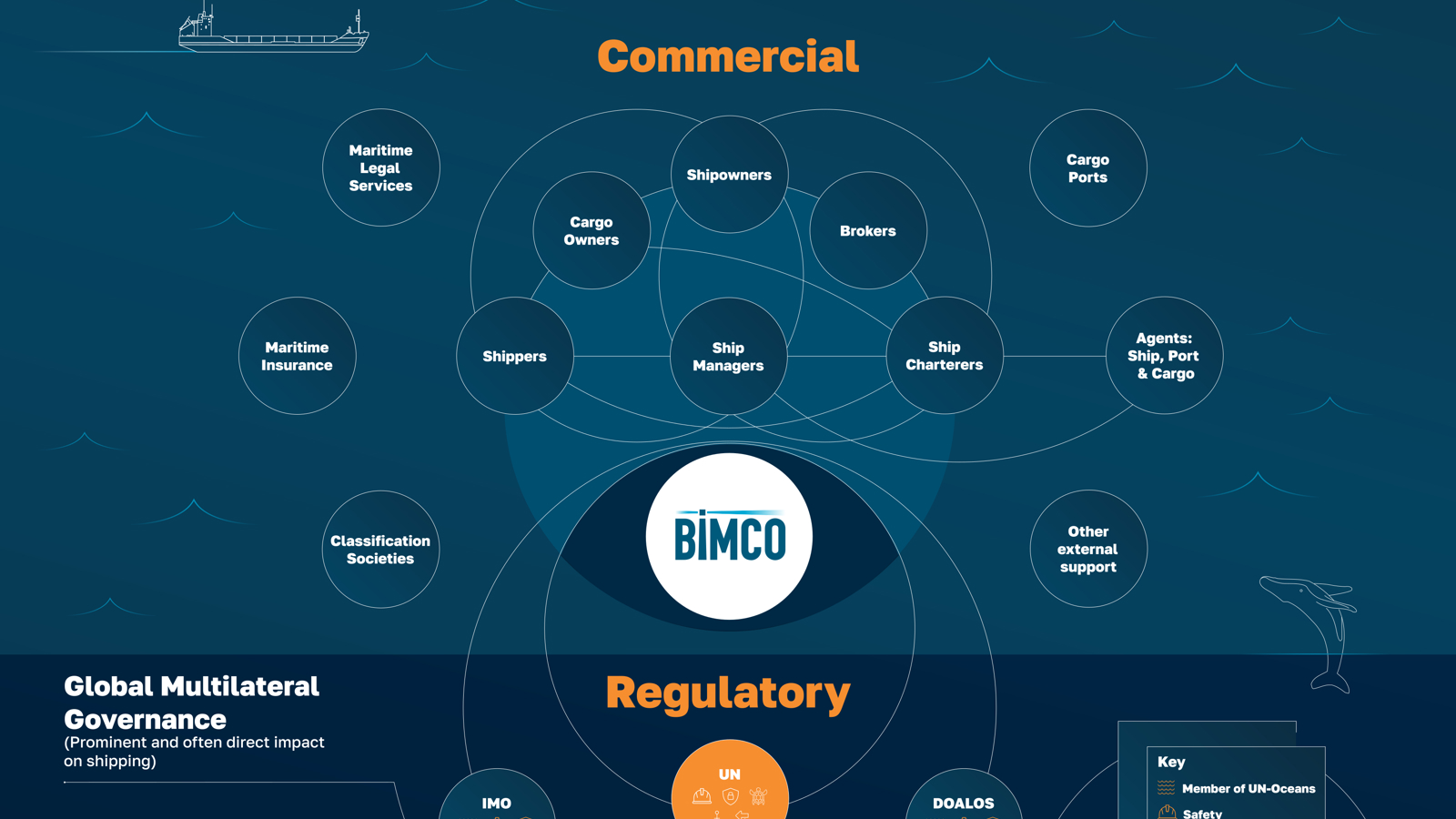Who's who
The specialist shipping businesses which facilitate global trade.
A ship broker acts as a professional intermediary, connecting shipowners with charterers, helping negotiate contracts, rates, and terms for transporting goods. They may also facilitate the buying and selling of ships, provide market insights and price forecasting along with advice on finance and the insurance market, and may even assist with logistical support, including cargo booking and transportation.
A charterer rents a ship for a specific period or voyage, handling logistics, voyage planning, and operational costs like fuel and port charges. There are different types of charter involving different levels of control, responsibility, and financial arrangement. Some of the main ones are:
- Voyage charterer - hires a ship for a single voyage, from one port to another, for the transportation of goods
- Time charterer - hires a ship for a specified period, during which the charterer can use the ship for any voyages within that time, paying a daily or monthly fee to the shipowner and paying for the fuel, port charges, and other operational costs
- Bareboat charterer - leases the ship ‘bare’ without crew or provisions and is in full control of the ship.
A crewing agent recruits and arranges personnel for ships. The agent ensures the crew meet regulatory and operational requirements, manages their contracts, and arranges travel and training.
Freight forwarders coordinate the transportation of goods, organising shipments from origin to destination, including arranging for shipping, warehousing, and customs clearance.
Maritime lawyers specialise in legal issues related to shipping, of which there are many including charterparties, shipbuilding, finance, commodities, energy, insurance, cargo, collision, salvage, general average and pollution.
A liner agent represents a liner shipping company, which provides scheduled services along specific routes. A liner agent handles the day-to-day operations, including cargo booking, issuing bills of lading, liaising with customers, coordinating port logistics and berth scheduling, helping with customs documentation and clearance, and generally facilitating the smooth and efficient operation of the shipping line.
Insurers provide coverage for ships, cargo, and operations against risks such as accidents, damage, or piracy, ensuring financial protection for parties in the shipping industry. A maritime underwriter will use their technical and industry expertise to evaluate and price the risks facing ships, cargo, and marine operations, taking into account a wide range of factors, based on cargo, the ship’s age and condition, and whether the route is likely to encounter conflict, piracy or heavy weather.
Marine insurance is very specialised and includes:
- H&M (Hull & machinery): This protects the insured ship against hull and machinery damage and/or total loss caused by a peril of the sea or other covered risks. The policy normally contains elements of cover for liabilities to third parties in the event of collisions or should the ship strike fixed or floating objects. The insurance also covers the costs of measures to avert or minimise loss, including salvage and the maritime law principle of general average, which requires all parties involved in a voyage to share the costs of saving the ship and cargo during a crisis
- P&I (Protection & Indemnity): P&I is mutual insurance structure that allows members to pool their risks to reduce the financial burden of large claims. P&I clubs cover liabilities beyond those typically covered by standard hull and machinery insurance, such as personal injury, cargo loss, oil spills or fines for violations of local laws. P&I clubs may also cover the legal expenses involved in defending claims, when a shipowner or operator is sued or involved in legal disputes. P&I clubs provide expert advisory services on compliance with international conventions or other risk mitigation services. Most P&I clubs operate on a mutual basis, and are owned and governed by their members, with the profits (or losses) shared among them.
Agents act on behalf of shipowners or charterers at ports, with responsibility for coordinating many logistics operations, including berthing arrangements, pilotage and towage, cargo handling, documentation, crew needs and husbandry, in order to ensure smooth and efficient movement of commodities and goods.
Shipowners own merchant ships, such as tankers, container ships, bulk carriers and other ship types. They are responsible for maintenance and safe and efficient operations. A shipowner must ensure their ship is registered in a flag state, insured and complies with the maritime laws of the flag state including international maritime regulations, such as SOLAS, MARPOL and the ISM Code. The shipowner is responsible for ensuring that the ship is maintained and compliant with flag state or classification rules, and meet the applicable safety and environmental standards and that the crew is competent, properly trained, qualified, and certified as per the STCW convention, paid and released on time, and their accommodation, food and medical needs are in accordance with the Maritime Labour Convention.
Ship managers act on behalf of their clients (shipowners) to oversee the day-to-day operations of a ship, from budgeting to scheduling. They ensure ships are well-maintained, compliant with regulations, and operate efficiently to meet commercial and safety standards. They may also handle financial management, including budgeting for fuel, supplies, and repairs. They liaise with various stakeholders, including port authorities and classification societies, to ensure the ship operates efficiently, safely, and in accordance with industry standards and regulations.
Surveyors inspect ships and cargo to assess condition, value, and compliance with regulations. They provide reports on accidents, incidents, damages, ship standards, and cargo condition, quality and quantity.
A trader buys and sells commodities globally, often relying on shipping services to transport goods like oil, grain, and metals between ports, and may directly contract ships for delivery.


